Search Results for: Fish
Skip to resultsCan’t find what you’re looking for? Visit our FAQ page.
8,283 results for: Fish
-
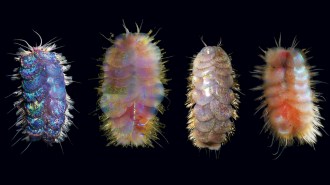 Science & Society
Science & SocietyFrom Elvis worms to the Milky Way’s edge, these science stories sparked joy in 2020
During a gloomy year dominated by a pandemic, these scientific discoveries were reminders that we live in a world of wonder.
-
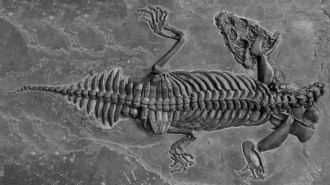 Animals
AnimalsA surprisingly tiny ancient sea monster lurked in shallow waters
Scientists have found a new species of marine reptiles called nothosaurs from around 240 million years ago.
-
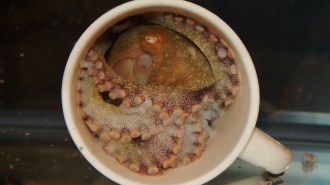 Animals
AnimalsHow octopuses ‘taste’ things by touching
Octopus arms are dotted with cells that can "taste" by touch, which might enable arms to explore the seafloor without input from the brain.
-
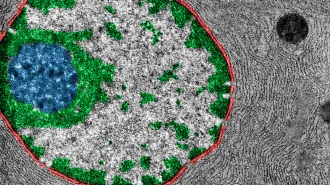 Genetics
GeneticsA key to the mystery of fast-evolving genes was found in ‘junk DNA’
A new study challenges a long-held belief that essential genes change little over time.
-
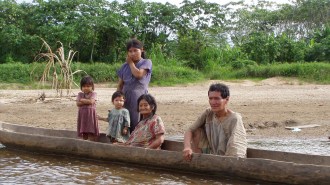 Anthropology
AnthropologyBolivia’s Tsimane people’s average body temperature fell half a degree in 16 years
A new study echoes other research suggesting that people’s average body temperature is lower today than it used to be.
By Sujata Gupta -
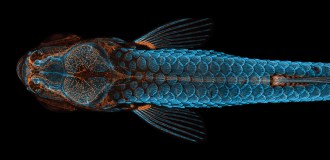 Life
LifeA glowing zebrafish wins the 2020 Nikon Small World photography contest
The annual competition features snapshots that use microscopy to reveal some of Earth’s smallest hidden marvels.
-
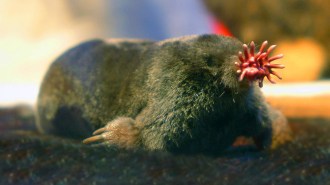 Science & Society
Science & Society‘Great Adaptations’ unravels mysteries of amazing animal abilities
Kenneth Catania has resorted to some unusual experiments to understand the lives of star-nosed moles, electric eels and other remarkable animals.
-
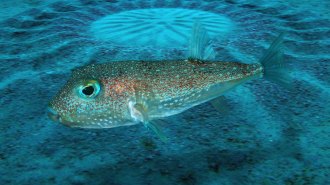 Animals
AnimalsPufferfish may be carving mysterious ‘crop circles’ near Australia
In 2011, scientists discovered that tiny pufferfish were sculpting Japan’s underwater “mystery circles.” Now, more circles have emerged in Australia.
By Jake Buehler -
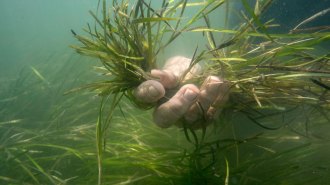 Environment
EnvironmentHow planting 70 million eelgrass seeds led to an ecosystem’s rapid recovery
The study is a blueprint for restoration efforts that capitalize on seagrass habitats’ capacity to store carbon and that can be replicated elsewhere.
-
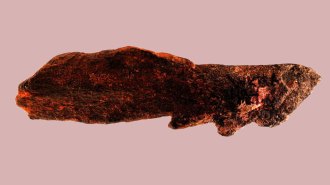 Anthropology
AnthropologyHomo erectus, not humans, may have invented the barbed bone point
Carved artifacts excavated from Tanzania’s Olduvai Gorge suggest now-extinct hominids made barbed bone points long before humans did, researchers say.
By Bruce Bower -
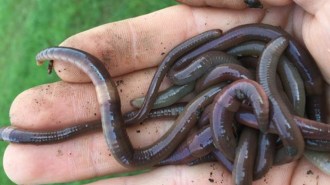 Environment
EnvironmentInvasive jumping worms damage U.S. soil and threaten forests
Also known as snake worms, these writhing wrigglers turn forest leaf litter into bare ground, changing soil composition and ecosystems as they go.
By Megan Sever -
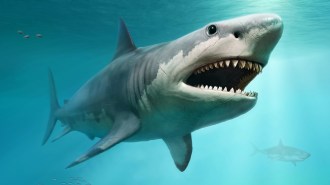 Paleontology
PaleontologyCannibalism in the womb may have helped megalodon sharks become giants
The ancient sea terror Otodus megalodon may have grown to at least 14 meters long thanks to a firstborn pup’s predatory behavior, some researchers say.